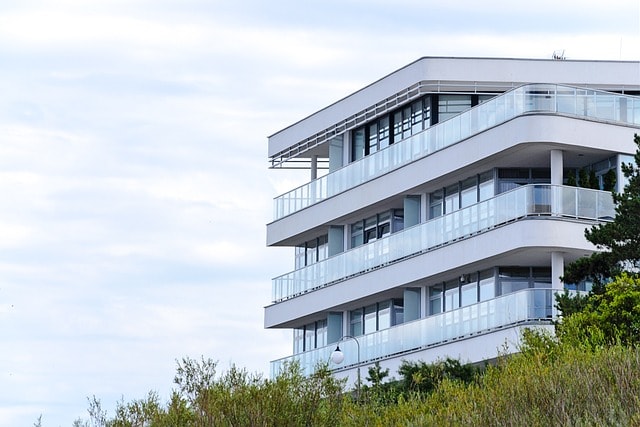The Crucial Role of an Attorney for Condo Association

Introduction To Attorney For Community Association
As a veteran real estate attorney with over two decades of experience representing condominium and homeowners associations (HOAs), I’ve witnessed firsthand the complex legal landscape these communities navigate. This article will explore attorneys’ vital role in guiding these associations through various legal challenges, drawing on real-world cases and expert insights.
Why Homeowner Associations Need Legal Counsel

Condominium and homeowners associations face many legal issues, from interpreting governing documents to managing disputes between owners. An experienced HOA attorney provides invaluable guidance in several key areas:
- Governing Document Interpretation and Enforcement
- Legal Compliance
- Dispute Resolution
- Collections and Foreclosures
- Contract Review and Negotiation
“Having dedicated legal counsel can save associations significant time, money, and stress in the long run,” explains Sarah Johnson, a board-certified specialist in condominium and planned development law. HOA board members benefit from legal guidance to navigate their responsibilities, avoid conflicts of interest, and ensure they act in the association’s best interest.Sarah Johnson, a board-certified specialist in condominium and planned development law, advises that having legal counsel can save associations time, money, and stress. HOA board members benefit from legal guidance to navigate responsibilities and avoid conflicts of interest.
The Scope of HOA Legal Services

Governing Documents
Attorneys play a crucial role in drafting, interpreting, and amending an association’s governing documents, including the HOA’s governing documents such as:
- Declaration of Covenants, Conditions, and Restrictions (CC&Rs)
- Bylaws
- Rules and Regulations
Case Law Example: In Nahrstedt v. Lakeside Village Condominium Assn. (1994), the California Supreme Court upheld a condominium association’s pet restriction, emphasizing the importance of properly drafted and enforced governing documents.
Legal Compliance
Condominium associations and HOA boards ensure compliance with state and federal laws, including:
- Fair Housing Act
- Americans with Disabilities Act
- State-specific condominium and HOA laws
“Staying compliant with ever-changing laws is a full-time job,” notes a seasoned HOA attorney, Michael Brown. “It’s crucial for associations to have legal counsel to navigate these complexities.”
Dispute Resolution
Homeowners association attorneys assist in resolving disputes between:
- The association and homeowners
- Homeowners and other homeowners
- The association and third parties
Case Law Example: In Lamden v. La Jolla Shores Clubdominium Homeowners Assn. (1999), the California Supreme Court established the “business judgment rule” for HOAs, defending board decisions in good faith.
Collections and Foreclosures
When homeowners fall behind on assessments, attorneys guide associations through the collection process to protect property values, which may include:
- Sending demand letters
- Filing liens
- Initiating foreclosure proceedings
“Collections can be sensitive,” says HOA collections specialist Lisa Thompson. “Having an attorney ensure the process is handled legally and ethically is crucial.”
The Benefits of Specialized HOA Attorneys

While general practice attorneys can handle some HOA matters, specialized HOA attorneys offer distinct advantages:
- In-depth knowledge of condominium and HOA law
- Familiarity with common association issues
- Established relationships with courts and local authorities
- Cost-effective solutions tailored to association needs
Although some board members may seek attorneys specializing in real estate law, this area primarily concerns homeownership and disputes, differing from the specific legal requirements of HOAs. Attorneys with business or contractual law expertise are often more suitable for handling HOA governing documents.
“Specialized HOA attorneys speak the language of community associations,” explains Robert Davis, president of a large condo association. “Their expertise has been invaluable in navigating complex legal waters.”
Selecting the Right Attorney

When selecting legal representation, associations should take into account:
- Experience in condominium and HOA law
- Track record of successful representation
- Familiarity with local laws and regulations
- Communication style and availability
- Fee structure and transparency
A management company can provide valuable recommendations for legal representation and may even offer legal assistance as part of their services.
Real-World Impact: Case Studies

Case Study 1: Bylaw Amendment Challenge
In a recent case, our firm represented a Florida condominium association’s HOA board facing a challenge to a newly passed bylaw amendment. The amendment, which restricted short-term rentals, was contested by several owners who claimed it was improperly enacted.
Outcome: We meticulously documented the amendment process and demonstrated strict adherence to Florida law and the association’s governing documents, successfully defending the amendment in court. This case underscored the importance of experienced legal counsel guiding associations through significant governance changes.
Case Study 2: Fair Housing Act Compliance
We advised a California HOA and its board members on modifying its pool access policy to accommodate a disabled resident. The case required balancing the individual’s needs with the association’s safety concerns and the rights of other residents.
Outcome: We worked closely with the board and residents to create a fair policy. The new rules allowed the disabled resident to use the pool safely while keeping safety standards high for everyone. This approach helped the association in three ways:
- It avoided a potential lawsuit, saving thousands in legal fees.
- It ensured the association followed Fair Housing Act rules.
- It made the community more welcoming for all residents.
By addressing the issue proactively, the association showed good leadership and set a positive example for other HOAs facing similar challenges.
The Future of HOA Legal Representation
As community associations evolve, so does their legal counsel’s role. Emerging trends include:
- Increased focus on cybersecurity and data privacy
- Growing importance of alternative dispute resolution
- Adaptation to climate change and sustainability regulations
“The legal landscape for HOAs is constantly shifting,” notes Emily Chen, a property law professor. “Associations prioritizing ongoing legal guidance will be best positioned to thrive.”
Conclusion
The role of attorneys in condominiums and homeowners associations cannot be overstated. From ensuring legal compliance to resolving complex disputes, skilled legal counsel is essential for these communities’ smooth operation and long-term success. Condominium law is critical in resolving various legal issues condominium associations face, such as contractual disputes, insurance claims, and representation in board meetings. As associations face increasingly complex challenges, partnering with experienced HOA attorneys will remain crucial in navigating the legal landscape and protecting the interests of all community members.
Related Terms: Condo associations, community association, condominium association, condo board













